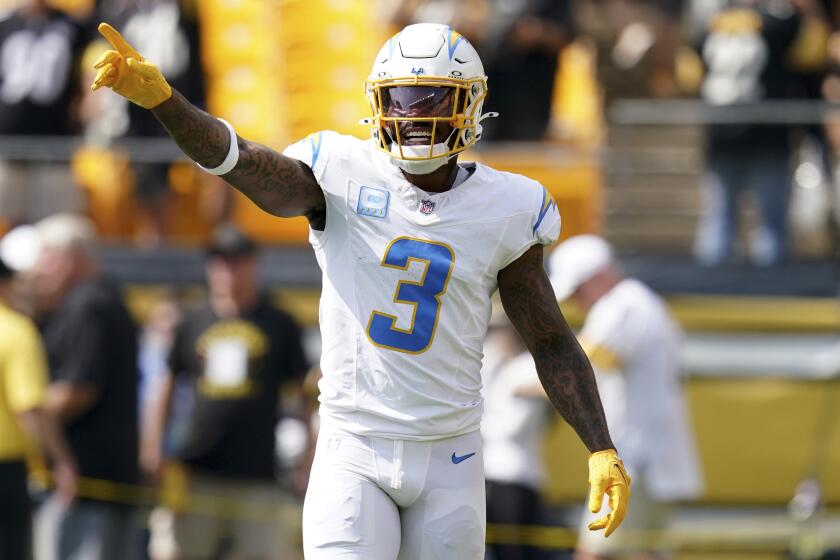ADD drug use continues to rise among MLB players
The authorized use of drugs to treat attention deficit disorder continues to rise among Major League Baseball players, according to statistics included in a report released Friday.
MLB players received a record 119 exemptions to use ADD drugs last season, according to the annual report issued in accordance with baseball’s drug policy. An additional seven players were disciplined for unauthorized use of Adderall, a drug used to treat ADD.
The MLB drug policy applies to about 1,200 players -- that is, the 40-man rosters of all 30 clubs. The results released Friday indicate that 1 in 10 players have been diagnosed with ADD.
That is at least double the incidence of ADD in the general population. MLB officials say their figure is not out of line among the baseball population -- younger, all male, and with daily access to medical professionals.
However, as critics have noted, the number of ADD exemptions rose dramatically after MLB banned amphetamines starting with the 2006 season. The initial jump -- from 28 in 2006 to 103 in 2007 -- attracted the attention of Congress in 2008.
In 2012, MLB tightened the rules so that the league could investigate a player’s need for an ADD prescription rather than just accept the prescription of an independent physician.
Nonetheless, the number of exemptions generally continued to rise, albeit slowly: 106 in 2008, 108 in 2009, 105 in 2010 and 2011, 116 in 2012, and 119 this year.
As an aside, the adage about crime not paying was recently disproven by catcher Carlos Ruiz, suspended 25 games last season for unauthorized use of Adderall. Ruiz, 35, last week signed a three-year contract to stay with the Philadelphia Phillies for $26 million -- almost double his previous total career earnings.
ALSO:
Lindsey Vonn eager to get back to racing
Steelers Coach Mike Tomlin disrupts Jacoby Jones’ kickoff return
UCLA alum Will Forte feels sorry for undereducated USC fans Saturday
More to Read
Go beyond the scoreboard
Get the latest on L.A.'s teams in the daily Sports Report newsletter.
You may occasionally receive promotional content from the Los Angeles Times.











